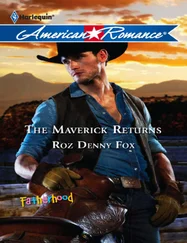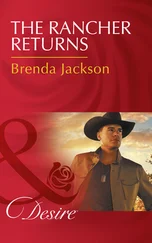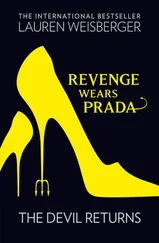“You got everything? Well, except these.” His mouth was full of orange. “You can’t take these. A gun’s easier to bring into the country than a piece of fruit, isn’t that something?”
A gun.
Neri had said that the whole crate of Colt Peacemakers was untraceable. Still, it couldn’t be good, leaving the gun behind. It made Fredo look like a fool. Worse, he was left without a gun. He considered asking the captain for one but didn’t want to push his luck.
“I got everything,” Fredo said, heading toward the door.
They got into the captain’s unmarked car. The radio came on, full blast. “And now, more music!” The captain turned it down and again apologized. It was an old song: the big-band sound of Les Halley and His New Haven Ravens, featuring the vocal stylings of Johnny “ Memory Lane ” Fontane. One of their last sessions together, the deejay said, “before he left the world of platters for movieola matters.”
“My wife,” said the captain, pointing at the radio, “always used to love this record.”
Fredo nodded. “Everyone’s wife did. That’s how a lot of ’em got to be someone’s wife. Songs like this here.”
“Hard to imagine how much pussy a guy like that must get.”
“Oh, I can imagine,” Fredo said. “It doesn’t hurt that John’s a hell of a great guy, either.”
“You know Johnny Fontane?”
“Personal friends,” Fredo said, shrugging.
They didn’t say anything more until the song was over.
“Personal friends, huh?” asked the captain.
“Personal friends. Matter of fact, my dad was his godfather.”
“No shit.”
“No shit.”
“Let me ask you something, then,” said the captain. “Is it true he’s got a dick the size of your arm?”
“How the fuck would I know a thing like that?”
“I don’t know. Sauna or something. It’s just a rumor I heard, and I figured-”
“What are you,” Fredo asked, “a fruit?”
The captain rolled his eyes and turned on his siren. They drove the rest of the way to the airport like that, a hundred miles an hour and not talking.
P HIL ORNSTEIN’Scorner office on the forty-first floor was lined with gold records and pictures of Philly’s frankly unattractive family but none of famous people, which was either an affectation or a reason to love the guy. He ushered Johnny Fontane behind his stainless steel desk. “Take as long as you’d like,” he said, though he couldn’t have meant that. Milner was getting the band squared away for the next number. Johnny dialed the number to his old house.
Halfway through, he stopped. Ginny and the girls had no idea he was in L.A. If he didn’t call, they’d be none the wiser. He was calling to apologize for not seeing them while he was in town, but the only thing that made the call necessary was the call itself.
He took out the pep pills, considered the label, then took one out and swallowed it dry.
Shit. What was he, some schoolboy segaiolo, afraid to ask out the prom queen? He’d known Ginny, his ex, ever since they were ten. The literal girl next door. He redialed.
“It’s me,” he said.
“Hello, my life,” Ginny said. She managed to say that in a way that was sweet and sarcastic at the same time. There’s nothing like a Brooklyn girl. “Where are you?”
“God, it’s great to hear your voice,” Johnny said. “What are you doing?”
They’d just gotten back from May Company, she told him. His oldest daughter had purchased her first brassiere.
“You can’t be serious,” Johnny said.
“When’s the last time you saw her?” Ginny said.
He’d had good-paying gigs in Atlantic City and at private clubs in the Jersey Palisades and the one Louie Russo had outside Chicago. He’d done a picture on location in New Orleans. The early scenes of it were shot here, on soundstages. Probably then. “Memorial Day?”
“Rhetorical question,” she said. “So where are you now?”
“Remember that one Labor Day, I don’t know what year,” he said. “We rented that place at Cape May, and we all went to that clambake?”
“No,” she said.
“You’re kidding,” he said. He could hear his girls in the background, arguing.
“Of course I’m kidding. Those were the times of my life. Back when I didn’t exist.”
Les Halley had insisted that Johnny pretend he was single so that the bobby-soxers would all keep screaming. “That was never my idea,” he said.
“And you had your floozy across town so that every time you went out for cigarettes-”
“Remember when I burnt my hands trying to cook that corn and-”
“And then burnt them again on those firecrackers.”
“True.” He had to laugh.
“There’s a block party tomorrow,” she said. “We have to make pie. You want to come?”
“To the party?”
“You’re in town, right? You sound so close.”
He cradled the phone against his shoulder and covered his eyes with both hands. “No,” he said. “I’m not. It’s just a good connection.”
“Oh,” she said. “Your loss. I’m making chicken scarpariello, too. Same recipe your ma showed me. Actually, the girls are. If they don’t kill each other first. They’re at that age.”
Johnny loved them, but as far as he could tell they’d always been at that age.
She asked if he wanted to talk to them. He said he did, but only his younger daughter would get on the phone. Philly came in, tapping his watch.
“Tell your mother,” Johnny said, “that I’ll do my best to make it to the party tomorrow.”
“Okay,” she said. She’d convey the message-she was that kind of kid-but there was a note in her voice that made it clear she knew he’d never show.
The green pills had been prescribed by Jules Segal, the same doctor who’d diagnosed the warts on Johnny’s vocal cords and referred him to the specialist who shaved them off, an operation that made it possible for Johnny to get back into good voice and into the studio, a diagnosis two specialists had missed. Point being, there were a thousand Hollywood quacks whose interest in the human body had dwindled to the fleshy parts of their starlets du jour and the finer points of their own backswings, getting rich by handing out pills and taking care of girls in trouble, and then there was Segal, who had the same kind of rep but turned out to be a first-rate doctor, good enough to be chief of surgery at the new hospital the Corleones were building in Las Vegas. So why was it that every time Johnny popped another of those pills-still in line with the dosage recommended on the side of the bottle, never more-he went off by himself?
Johnny shook it off, like a dog with an itch in its ear. He’d be fine, really. Both under control and not. Which was okay, which suited the task at hand. He was getting by on four pills, twenty cups of tea, a pot of coffee, a ham sandwich, and no sleep. In the space between his scalp and skull, microscopic ants danced some hepcat thing like the hucklebuck. The aching in the big muscles on top of his thighs, whatever they were called, sharpened almost by the minute. But Johnny stayed on his feet, too spent even to fall to the floor for a nap. At the same time, he had too much energy. He couldn’t help but take each piece of barely perceptible direction he got from that brilliant lummox Milner and do his level best to put it in play.
He’d have given anything to stop.
He’d have given anything to make this feeling last forever.
He’d come here thinking he’d lay down half a long-playing record. A few minutes into the session, he realized he’d be doing well to finish one song to both his and Cy Milner’s satisfaction. Yet, minutes before he’d have to catch a plane back to Vegas, he found himself doing the third song of the day so well he got to the end without stopping or being stopped.
Читать дальше











